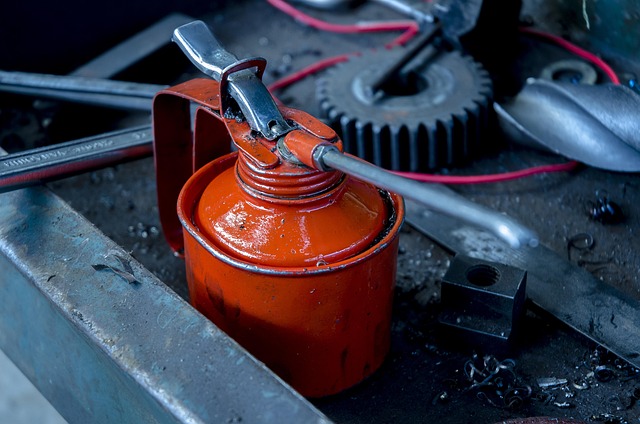Understanding Degreaser Spray and Its Cleaning Applications
Degreaser sprays are effective cleaning solutions that remove stubborn grease, oil, and residue from various surfaces. Perfect for kitchens, garages, and industrial areas, they help maintain cleanliness, improve hygiene, and make regular cleaning tasks quicker and more efficient.

What Makes Degreaser Spray Cleaning Products Effective
Degreaser spray cleaning products contain specific chemical formulations that target grease and oil-based substances. The active ingredients typically include alkaline compounds, surfactants, and sometimes petroleum-based solvents that work together to emulsify grease. When applied to greasy surfaces, these products break the molecular bonds in oil and grease, allowing them to be easily wiped away or rinsed off. The spray delivery system ensures even coverage and allows users to reach difficult areas that might be challenging to clean with traditional methods.
Most degreaser sprays work through a process called saponification, where alkaline ingredients convert grease into soap-like substances that can be easily removed with water. Some formulations also include enzymes that specifically target protein-based soils, making them effective against both grease and food residues commonly found in kitchen environments.
Heavy-Duty Degreaser Sprays for Home Use Applications
Heavy-duty degreaser sprays for home use are formulated to handle the most challenging cleaning tasks while remaining safe for residential environments. These products excel in kitchen cleaning, particularly for removing built-up grease from stovetops, range hoods, and oven interiors. They also prove invaluable for garage cleaning, effectively removing automotive grease from tools, workbenches, and concrete floors.
Common household applications include cleaning barbecue grills, removing adhesive residue, tackling grease stains on clothing before washing, and maintaining outdoor equipment. The heavy-duty formulations typically contain higher concentrations of active ingredients compared to general-purpose cleaners, making them suitable for grease that has accumulated over time or been baked on by heat.
Safety considerations for home use include ensuring adequate ventilation during application, wearing protective gloves, and keeping products away from children and pets. Many heavy-duty degreasers require dilution for certain applications, and users should always follow manufacturer instructions for optimal results and safety.
Professional Degreaser Spray Cleaning Solutions
Professional degreaser spray cleaning solutions are designed for commercial and industrial applications where cleaning demands exceed typical household requirements. These products often feature specialized formulations for specific industries, such as food service, automotive repair, or manufacturing facilities. Professional-grade degreasers may contain higher concentrations of active ingredients and specialized additives for enhanced performance.
In commercial kitchens, professional degreasers must meet food safety standards while effectively removing grease from exhaust systems, fryers, and preparation surfaces. Automotive applications require degreasers that can handle motor oil, transmission fluid, and other petroleum-based substances without damaging painted surfaces or rubber components.
Industrial degreaser solutions often include features like foam generation for vertical surface cleaning, extended contact time for heavily soiled areas, and compatibility with pressure washing systems. These products may also be formulated to work in specific temperature ranges or with particular water hardness levels common in industrial settings.
Types and Categories of Degreaser Cleaning Products
Degreaser cleaning products fall into several distinct categories based on their chemical composition and intended applications. Solvent-based degreasers use petroleum distillates or other organic solvents to dissolve grease and are particularly effective on heavy petroleum-based soils. These products typically work quickly but require careful ventilation and handling due to their volatile nature.
Water-based or aqueous degreasers rely on alkaline ingredients and surfactants to emulsify grease and oils. These formulations are generally safer to use, produce fewer fumes, and are easier to rinse away completely. They work well for most household and light commercial applications.
Biodegradable degreasers use plant-based surfactants and enzymes to break down grease while minimizing environmental impact. These products appeal to environmentally conscious consumers and businesses seeking sustainable cleaning solutions. Specialty degreasers include products formulated for specific materials like aluminum, stainless steel, or painted surfaces, ensuring effective cleaning without causing damage or discoloration.
| Product Type | Key Features | Typical Applications | Price Range |
|---|---|---|---|
| Solvent-Based Degreaser | Fast-acting, penetrates heavy grease | Industrial equipment, automotive | $8-25 per quart |
| Water-Based Degreaser | Safe for most surfaces, easy cleanup | Kitchen appliances, general cleaning | $5-15 per quart |
| Biodegradable Degreaser | Environmentally friendly, enzyme-based | Food service, eco-conscious cleaning | $10-30 per quart |
| Foaming Degreaser | Extended contact time, vertical surfaces | Range hoods, ovens, machinery | $7-20 per aerosol can |
Prices, rates, or cost estimates mentioned in this article are based on the latest available information but may change over time. Independent research is advised before making financial decisions.
Safety Considerations and Proper Usage Guidelines
Proper safety measures are essential when using degreaser sprays, as these products contain concentrated chemicals that can cause skin and eye irritation. Always wear protective equipment including gloves, safety glasses, and appropriate clothing when applying degreasers. Ensure adequate ventilation in the work area, particularly when using solvent-based products that may produce harmful vapors.
Before applying any degreaser spray, test it on an inconspicuous area to ensure compatibility with the surface material. Some degreasers can damage certain plastics, painted surfaces, or natural stone materials. Read product labels carefully to understand dilution requirements, contact times, and any surface restrictions.
Store degreaser products in their original containers, away from heat sources and out of reach of children and pets. Never mix different cleaning products, as this can create dangerous chemical reactions. When disposing of empty containers or unused product, follow local environmental regulations and manufacturer recommendations.
Understanding the various types of degreaser sprays and their appropriate applications helps ensure effective cleaning while maintaining safety standards. Whether tackling household grease buildup or addressing commercial cleaning challenges, selecting the right degreaser spray product makes cleaning tasks more efficient and successful. Regular use of appropriate degreasers helps maintain cleaner environments and extends the life of equipment and surfaces by preventing grease accumulation.




